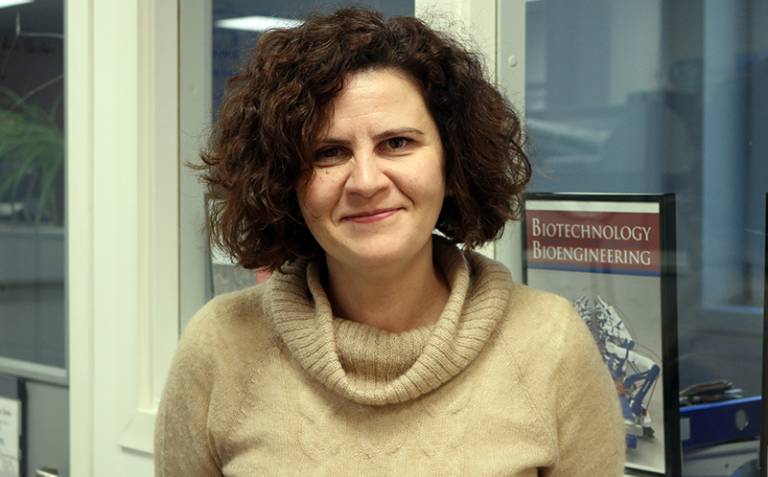New colleague Duygu Dikicioglu wins £80k RAE award
26 March 2020
Duygu Dikicioglu has won a Royal Academy of Engineering Transforming Systems Through Partnership award for her project: Engineering fermentation strategies using non-conventional yeast to scale-up functional food production

The award (£80k) will support collaborations with Prof Emrah Nickerel (Yeditepe University, Turkey) to work on 'Engineering fermentation strategies using non-conventional yeast to scale-up functional food production’
Glutathione (GSH) is a tripeptide, with an important role in regulation and protection mechanism of eukaryotes from various stresses, used in various industries e.g. food, feed, pharmaceutical and cosmetics. In the food industry, it is used as taste stabilizer, as dough modifier, and as a functional food and dietary supplement for humans.
GSH-rich yeast is produced fermentatively and manufactured in deactivated yeast form. To match the demand from the growing functional food market, production strains with improved properties are of great value. However, the selection of these strains and improvement methods are typically ad hoc, considered as art rather than science, especially when excluding GMO-route to obtain strains with improved properties. As such, obtaining new strains takes a long time. Rational elements and engineering concepts are rarely used, rendering the entire process development rather tedious and inefficient. To find a solution to this challenge, the project team with complementary expertise will adopt an engineering approach. In particular, by using model-experiment-analysis-design cycle, we propose generating high throughput, microliter scale, phenotypic fermentation data on GSH production in non-conventional Yarrowia yeast populations grown under oxidative stress. This information-rich data will be analysed using machine learning-based models to find key factors for GSH production as well as to select production candidates to be characterized in detail for its fermentation profiles at lab-scale. Finally, model-based selected production strain candidates will be evaluated at pilot-scale in collaboration with Pakmaya, an industrial yeast manufacturing company.
By identifying key process parameters as well as key metabolic processes relevant to growth and GSH production by Yarrowia species, we expect to provide the fundamental know-how on lipophilic yeast stress tolerance mechanisms, and translate that into applied research and finally to contribute overall prosperity by supporting the development of value-added products in the food chain through an international collaboration between academia and industry.
 Close
Close

